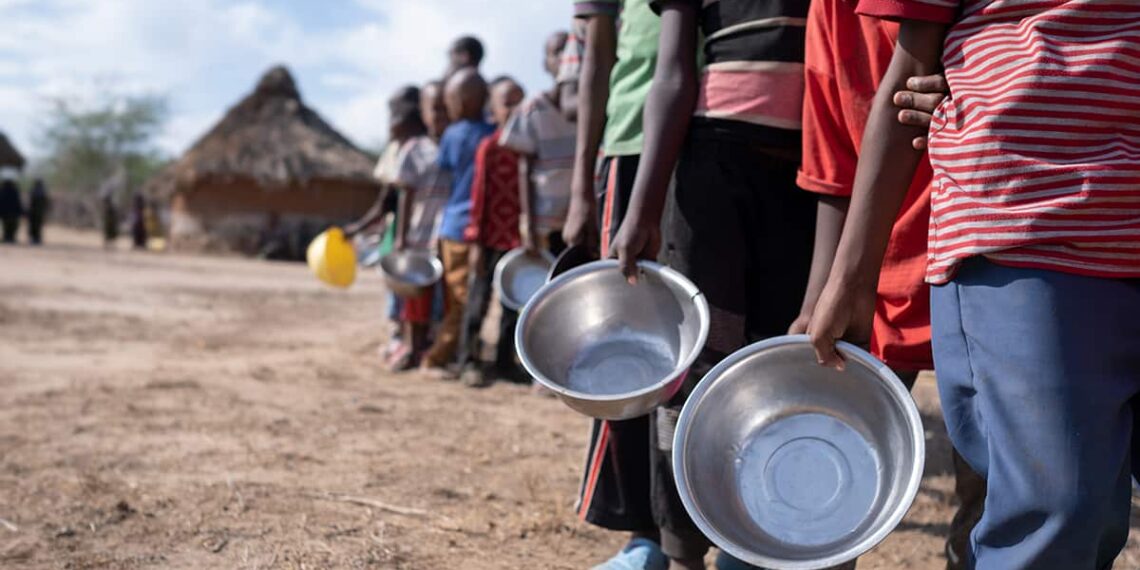
Hunger Crisis Looms: FG Raises Alarm as 161 Million Nigerians Face Food Insecurity

In a stunning revelation that paints a dire picture of the nation’s food security landscape, the Federal Government has raised the alarm over the deepening hunger crisis engulfing Nigeria. In an announcement that has shocked many, it was disclosed that approximately 161 million Nigerians are currently grappling with some level of food insecurity. This alarming figure, which represents over 70 percent of the country’s estimated population, has thrown policymakers, economists, humanitarians, and citizens alike into a state of growing concern.
The latest report, made public through the Ministry of Agriculture and Food Security and cited by Nairametrics, reveals that the problem is far more severe and widespread than previously assumed. While food insecurity has long been a challenge in many parts of Nigeria due to issues ranging from poverty and conflict to climate change and poor infrastructure, this recent data underscores a critical tipping point. The figures suggest that a majority of Nigerian households are either skipping meals, eating less than they need, or consuming lower-quality foods that lack the nutritional value necessary for a healthy life.
According to the Federal Government, the convergence of several socio-economic pressures has driven the food crisis to an all-time high. The combination of soaring inflation, depreciating naira, widespread insecurity in farming regions, and disruptions in agricultural production chains has created a perfect storm. Nigeria, a country that once prided itself on its agrarian heritage and vast arable lands, is now seeing more of its population sliding into food vulnerability, with little sign of immediate relief.
The ripple effect of this rising food insecurity is being felt in both urban and rural communities. In major cities like Lagos, Abuja, Port Harcourt, and Kano, the cost of basic food items such as rice, beans, garri, bread, and vegetables has doubled or tripled within the last year. Many low- and middle-income families are now being forced to make impossible choices — deciding between paying school fees or putting enough food on the table. In rural areas, the story is even grimmer. Farmers are abandoning their lands due to incessant attacks by bandits and insurgents, especially in the northern regions. Crops are being destroyed, livestock stolen, and lives lost, further reducing local food production and increasing dependence on expensive imports.
Insecurity in the agricultural belts of the country, particularly in states like Benue, Kaduna, Borno, Plateau, and Niger, has caused the displacement of thousands of farmers. Many Internally Displaced Persons (IDPs) now live in overcrowded camps where access to food is inconsistent and often insufficient. International organizations like the World Food Programme (WFP) and UNICEF have repeatedly warned that Nigeria risks descending into a full-blown famine if urgent steps are not taken.
Despite numerous interventions such as the Anchor Borrowers’ Programme, the National Home Grown School Feeding Programme, and other agricultural schemes aimed at boosting local food production, the results have not matched expectations. Critics argue that corruption, lack of coordination, policy inconsistencies, and mismanagement have hampered progress. Many farmers complain about limited access to quality seeds, fertilizers, modern tools, and credit facilities. The lack of storage and processing facilities also means that a large percentage of harvested crops are wasted before reaching markets.
Another pressing issue contributing to the problem is the effect of climate change. Unpredictable rainfall patterns, desertification in the north, flooding in the middle belt and south, and increasingly extreme weather conditions are all disrupting the traditional farming calendar. In 2022 and 2023 alone, devastating floods destroyed hundreds of thousands of hectares of farmland, leading to massive food shortages and increased prices.
For urban dwellers, the rising cost of living and inflation have turned food into a luxury for many. Market prices for staples have skyrocketed, and the middle class — once considered a buffer — is shrinking rapidly. A visit to any local market confirms the frustration of consumers who are buying less and paying more. Tomatoes, once sold for ₦200 per basket, now cost over ₦1,000. A bag of rice is nearing the ₦80,000 mark, and bread, once a symbol of affordability, is increasingly out of reach for millions.
The Federal Government, while acknowledging the severity of the crisis, says it is working on immediate and long-term solutions. Plans are reportedly underway to establish food security task forces, increase investment in mechanized agriculture, and ensure better security in farming areas. The government is also encouraging more public-private partnerships to drive innovation and attract investment into the sector. Additionally, emergency food assistance, distribution of fertilizers and improved seedlings, and better access to irrigation systems are some of the stop-gap measures being proposed.
But many experts argue that without drastic and sustainable reforms, Nigeria’s food insecurity problem may spiral out of control. They emphasize the need for decentralizing food production, empowering women and youth in agriculture, reducing post-harvest losses, reforming land ownership systems, and tackling insecurity head-on. There is also a call for stronger collaboration between the federal and state governments, as well as community-driven solutions that promote self-sufficiency.
The revelation that 161 million Nigerians are currently food insecure is not just a statistic — it is a humanitarian emergency that requires immediate action. Hunger affects health, education, productivity, and overall national development. Children who go to school hungry struggle to learn, workers who are undernourished become less productive, and families living in food stress become more vulnerable to disease and social unrest.
Already, reports are emerging of increased child malnutrition in several states, and hospitals are beginning to see more cases of ailments linked to poor diets. Nutritionists warn that stunted growth, cognitive decline, and weakened immune systems are some of the irreversible consequences of prolonged food deprivation. The long-term impact on Nigeria’s future generation could be catastrophic if left unchecked.
The voices from the grassroots are loud and painful. Mothers are skipping meals so their children can eat. Fathers are taking multiple jobs just to afford a loaf of bread. Market women are lamenting how customers now buy items in the smallest possible quantities. Even beggars on the streets are turning away from food donations because it is no longer enough to go around.
As Nigeria stares into the abyss of a deepening hunger crisis, the time to act is now. It is no longer about projections or warnings; the emergency is here, and the alarm has been sounded. With 161 million Nigerians already affected, food insecurity has become not just a developmental issue but a matter of national survival. The world is watching, and millions are hoping that decisive steps will be taken before things spiral beyond redemption.


